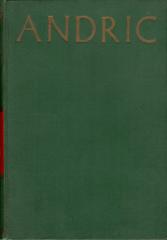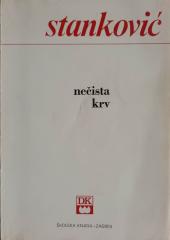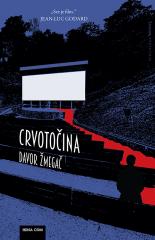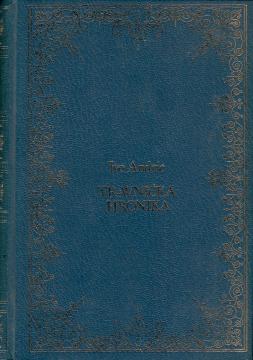
Sabrana djela II: Travnička hronika
"Travnička hronika" roman je Ive Andrića, prvi put objavljen 1945. godine. Ovo djelo pripada autorovom tzv. bosanskom ciklusu i pruža široku sliku povijesnih, kulturnih i političkih prilika u Bosni tijekom osmanske i austrijske vladavine.
Roman je kronika događaja u Travniku, tada sjedištu bosanskog vezira, tijekom razdoblja od 1806. do 1814. godine.
Radnja romana smještena je u Travnik, u vrijeme složenih političkih previranja kada su se Osmanlijsko Carstvo, Napoleonska Francuska i Habsburška Monarhija sukobljavali za utjecaj na Balkanu. U središtu priče su dvojica stranih konzula – francuski konzul Jean Daville i austrijski konzul Joseph von Mitterer – koji sa svojim obiteljima dolaze u Travnik i ulaze u interakciju s lokalnim stanovništvom, vlastima i kulturom.
Daville i Mitterer, sa svojim kontrastnim osobnostima i političkim ciljevima, nastoje pridobiti naklonost vezira i ostvariti politički utjecaj. Njihov dolazak simbolizira ulazak Zapada u zatvoreni svijet Bosne. Konzuli i lokalno stanovništvo često dolaze u sukobe zbog kulturnih razlika, političkih intriga i različitih interesa. Travnik je prikazan kao mjesto gdje se preklapaju različiti svjetovi – osmanski, zapadnoeuropski i lokalno bosanski.
S promjenama u globalnoj politici, dolazi do povlačenja konzula i završetka njihovih misija u Travniku. Njihov odlazak simbolizira prolaznost političkih i povijesnih događaja, dok Bosna ostaje u svom cikličkom stanju.
"Travnička hronika" napisana je u obliku kronike, s pripovjedačem koji s distance i objektivnošću opisuje povijesne događaje. Roman se ističe bogatim jezikom, detaljnim opisima i psihološkom dubinom likova. Kroz priču o prošlosti, Andrić razmatra univerzalne teme koje su relevantne i u modernom dobu.
Primjerak je dostupan kao dio kompleta knjiga "Ivo Andrić: Sabrana djela I-XVI"
Pregledajte komplet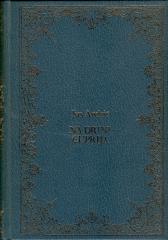
1. Sabrana djela I: Na Drini ćuprija
Na Drini ćuprija je roman Ive Andrića koji je prvi put objavljen 1945. godine. Radnja se odvija u Višegradu, malom bosanskom gradiću, a središnji motiv je na Drini ćuprija koja je simbol kulture, povijesti i sudbine naroda kroz stoljeća.
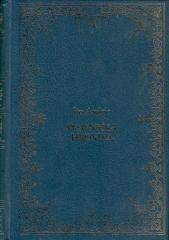
2. Sabrana djela II: Travnička hronika
"Travnička hronika" roman je Ive Andrića, prvi put objavljen 1945. godine. Ovo djelo pripada autorovom tzv. bosanskom ciklusu i pruža široku sliku povijesnih, kulturnih i političkih prilika u Bosni tijekom osmanske i austrijske vladavine.
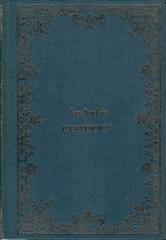
3. Sabrana djela III: Gospođica
"Gospođica" je roman Ive Andrića, prvotno objavljen 1945. godine. Djelo pripada tzv. bosanskoj trilogiji, zajedno s romanima "Na Drini ćuprija" i "Travnička kronika".
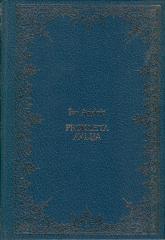
4. Sabrana djela IV: Prokleta avlija
"Prokleta avlija" jedno je od najpoznatijih djela Ive Andrića, prvotno objavljeno 1954. godine. Ovo kratko, ali moćno djelo predstavlja duboku analizu ljudske prirode i sudbine kroz priču o zatvorenicima u osmanskoj tamnici, poznatoj kao Prokleta avlija.
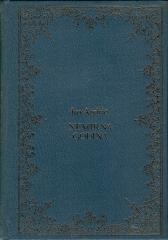
5. Sabrana djela V: Nemirna godina - pripovetke
"Nemirna godina" zbirka je pripovijedaka Ive Andrića koja uključuje niz kratkih priča pisanih tijekom raznih razdoblja njegova stvaralaštva.
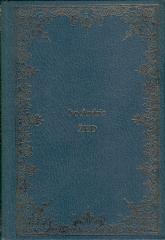
6. Sabrana djela VI: Žeđ - pripovetke
"Žeđ" je zbirka pripovjedaka Ive Andrića koja je prvi put objavljena 1936. godine. Ova zbirka predstavlja jedan od vrhunaca Andrićeva pripovjednog stvaralaštva.
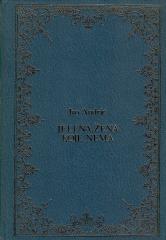
7. Sabrana djela VII: Jelena, žena koje nema - pripovetke
Zbirka je pripovjedaka Ive Andrića koja je prvi put objavljena 1963. godine. Ova zbirka sadrži niz pripovijedaka koje istražuju egzistencijalne teme, a naslovna pripovijetka je jedna od najpoznatijih u Andrićevu opusu.
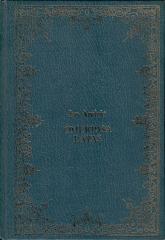
8. Sabrana djela VIII: Omerpaša Latas
Roman Ive Andrića Omer-paša Latas nastao je 1954. godine, a riječ je o povijesno-psihološkoj pripovijesti koja se temelji na životu stvarne povijesne ličnosti, Omer-paše Latasa, koji je bio osmanski vojskovođa i državnik tijekom 19. stoljeća.
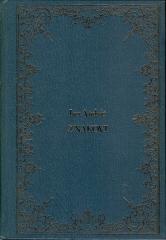
9. Sabrana djela IX: Znakovi - pripovetke
Ova zbirka okuplja niz Andrićevih kraćih djela koja se bave ljudskim sudbinama, povijesnim i društvenim okolnostima te univerzalnim pitanjima ljudske prirode.
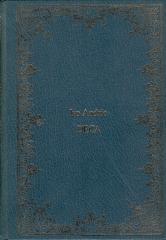
10. Sabrana djela X: Deca - pripovetke
Ova zbirka obuhvaća niz pripovijedaka koje se fokusiraju na svijet djece, njihovu nevinost, radoznalost, patnju i suočavanje s okrutnostima svijeta odraslih.
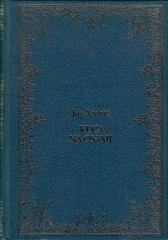
11. Sabrana djela XI: Kuća na osami i druge pripovetke
Izbor novela u ovoj knjizi sastoji se od dvaju dijelova. Jedan čini samostalna novelistička zbirka "Kuća na osami" na kojoj je Andrić radio pred sam kraj života, a u drugom dijelu skupljene su novele nastale u različitim razdobljima.
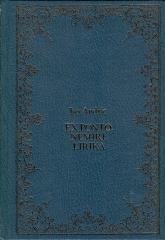
12. Sabrana djela XII: Ex Ponto, Nemiri, lirika
U ovom svesku objavljeni su Andrićevi rani radovi, pjesme u prozi, poetski zapisi i lirika. Svaki od ovih naslova nosi specifičnu tematiku i stil koji odražava Andrićevo unutarnje stanje i filozofske promišljanja.
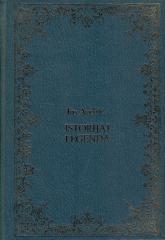
13. Sabrana djela XIII: Istorija i legenda: eseji, ogledi i članci
Ivo Andrić, osim što je bio vrstan romanopisac, bio je i talentiran esejist i autor ogleda. Njegova zbirka "Istorija i legenda" objedinjuje niz eseja, članaka i ogleda koji se bave temama povijesti, kulture, književnosti i ljudske sudbine.
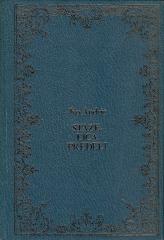
14. Sabrana djela XIV: Staze, lica, predeli
"Staze, lica, predeli" zbirka je eseja i zapisa Ive Andrića, prvi put objavljena 1963. godine. Ovo djelo razlikuje se od Andrićeve beletristike jer se bavi filozofskim, introspektivnim i autobiografskim razmatranjima.
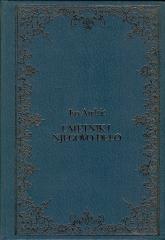
15. Sabrana djela XV: Umetnik i njegovo delo
"Umetnik i njegovo delo" je zbirka ogleda, eseja i članaka Ive Andrića, u kojoj ovaj veliki pisac razmatra ključna pitanja umjetnosti, stvaralačkog procesa i uloge umjetnika u društvu.
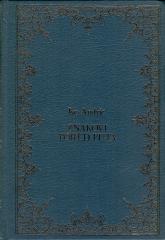
16. Sabrana djela XVI: Znakovi pored puta
"Znakovi pored puta" nisu ispovijed ni kronologija jednog života već fragmenti životne i duhovne borbe. Riječ je zbirci mudrosti koja iz generacije u generaciju predstavlja omiljeno štivo kojem se čitatelji uvijek rado i iznova vraćaju.
